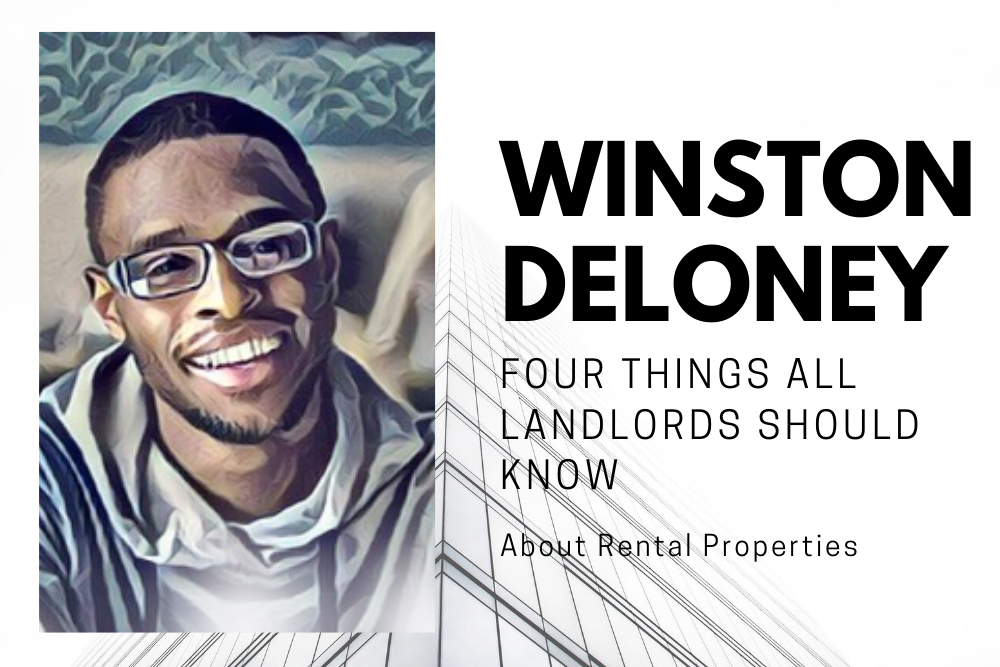Becoming a real estate investor is a big dream for many people, and it makes sense why. Having successful real estate investments can mean you’ll be profiting for years to come and be set for life with your finances.
A very common avenue for real estate investors is rental properties. When operated correctly, rental properties can essentially act as passive investment income.
But when you choose to invest in rental properties, you’re actually also making another big choice: to become a landlord. Having a property manager means someone could handle a bulk of the work, but when it comes down to it, a real estate property investor is still a landlord at the end of the day. And to be honest, becoming a landlord is no small undertaking.
Winston Deloney, an expert real estate investor, knows this all too well. We sat down with Deloney, to dive into the basics of owning rental properties, and four things all landlords should know.

Winston, what attracted you to real estate investing?
I see real estate investing as a huge opportunity. It’s an exciting world to be part of, and it can have huge payouts. That being said, it’s definitely not always easy.
For example, there was a time when I was still learning a lot, and there were ups and downs. But I chose to preserve, and now, I’m so glad I stuck with real estate investing and didn’t quit.
What brought you to rental properties?
The idea of having rent coming in every month as income was extremely attractive to me. I also love the idea of actually having control over the property and even being a landlord. There’s a ton of opportunity when you’re the one at the helm.
I really enjoy the process of making over units, and being involved with renters, even though that can definitely be challenging at times. But when you have happy renters, and you have a steady income, it’s really smooth sailing.
What are some of the basics of being a landlord?
I think it’s extremely important to make rent your number one priority. It can be easy to let emotions get in the way, because you’re dealing with real people who have real issues.
But if you let emotions drive your decisions, you’re not actually going to be a good landlord, and that’s going to permeate through your property. It won’t just affect you, but your other tenants as well.
I recently shared some useful tips on how to handle your first tenant, you can check out the article here: https://finance.yahoo.com/news/real-estate-investor-winston-deloney-110000108.html
What else should landlords know about rental properties?
So, rent being the priority is definitely my first tip. Next, I think screening your renters thoroughly is really critical. Because once someone moves in, actually evicting them is an exhausting process, and no one wants to go through that.
It might happen inevitably, but if you screen your renters carefully, you can definitely avoid it. You want to make sure they can pay on time, that they have consistent income, and that they’re people with good intentions.
For example, if they have a history of evictions and property damage, that’s a huge red flag, and you want to make sure you catch it.
Anything else?
I love thinking about rental properties in terms of the opportunity to upsell, which I don’t think enough people take advantage of. For example, if you have one tenant move out of a unit, you can spruce it up, put it new appliances, and maybe even some advanced smart home technologies.
All of a sudden, that unit is worth way more than it was before. So definitely look for opportunities to maximize your income. And I think lastly, this may sound basic, but a lot of people really overlook it. Make sure you’re an expert in your local renter and tenant laws.
For example, in some cases, if you mishandle a security deposit, you could be liable to give it back. That’s a silly mistake that means a big loss for you. So, you want to be up-to-speed on your laws not only to protect yourself from silly mistakes, but also potentially devastating ones.
 2018 ·
2018 ·
Leave a Reply